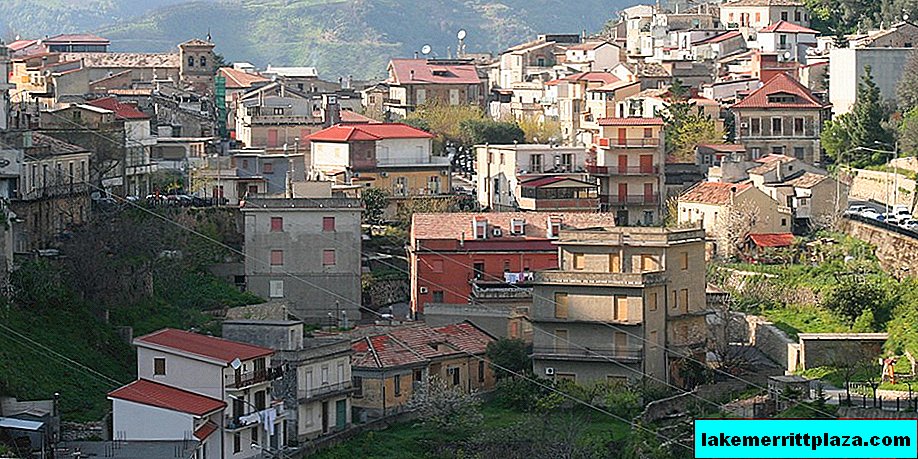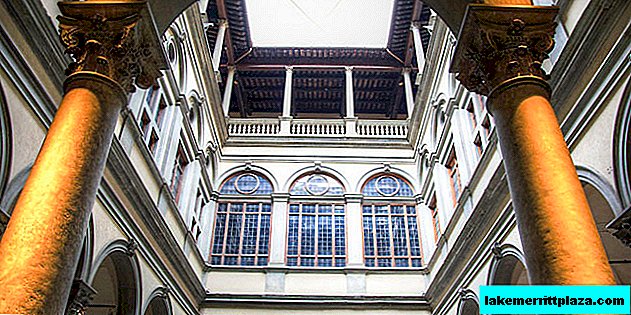Many foreigners who are eager to get to Italy explain that one of the main reasons guiding them is the unique local cuisine.
Italian cafes and restaurants sometimes amaze any imagination with all the variety of delicacies included in the menu. And the guests of the country do not hesitate to order unfamiliar names, trying to try a dish hitherto unknown to them. However, many tourists do not even suspect that some dishes of Italian cuisine, most likely, will not please their stomach.
Cheese Kasu Marzu

Cheese Casu Marzu - one of the national dishes of the Sardinia region (Sardegna) is very popular among the local population.
Kasu marzu, which means “rotten cheese,” is cheese in which real worms of small flies live, giving the product a fetid odor.
The chance that you will stumble upon this “flavored” cheese while traveling through other regions of a beautiful country is extremely small. The European Union has completely banned the import of Kasu Marz into its territory: doctors and biologists believe that this colorful product may well become a source of diseases and allergies.
However, the inhabitants of Sardinia are upholding the right of their cheese to exist. Many of them love this amazing dairy product so much that before tasting it they don’t even get rid of the small worms living there.
Lampredotto

This strange dish belongs to the Florence region (Firenze).
Lampredotto (Lampredotto) is a small bun with cooked entrails (low-value parts of beef, which includes sections of the cow's stomach).
The recipe for this dish dates back to the time of Michelangelo. Then he was preferred by the poor, and today lampredotto has become a traditional dish in the region. In fact, many tourists who were fortunate enough to try this amazing dish claim that it can seem repulsive only at first glance: you will forget about how unaesthetic a lampredotto looks as soon as you swallow the first piece.
Pork Blood Pancakes

Tuscany (Toscana) and Pistoia (Pistoia) are famous for their "cannibal" pancakes (Migliaccio pistoese, roventino). Tuscans have been kneading them on pig blood for several centuries.
Previously, this dish was held in high esteem among the peasants, and later gained popularity on the streets of Florentine towns.
It is worth noting that the inhabitants of Tuscany for so many years have “become more advanced” in the use of pork blood in other dishes: for example, today tourists can find delicacies such as pork blood pie or sausage from the same product in the menu of restaurants in the region.
Raw snails

Sunny Sicily also has its own unique dish - raw snails (Lumache). Locals love to eat snails, but the whole highlight of the food is that before eating it can not be processed.
The fact is that Sicilians believe that raw snails can alleviate the suffering of those who suffer from disorders of the gastrointestinal tract.
It is believed that only a few drops of mucus, which is released by the local "delicacy", can close the ulcer and eliminate the bacterium that causes gastritis.
Cuttlefish ink paste

Who would have thought that cuttlefish ink could be used for cooking?
However, doctors and cooks say: this is a natural food coloring, which, among other things, is also useful: it contains a whole set of amino acids that lower cholesterol and help improve metabolism.

Pasta with cuttlefish ink (Pasta al nero di seppia) also tastes quite good: it has a unique “sea” flavor. This product is widely used today for the preparation of other traditional Italian dishes, such as risotto, paella (paeglia) and spaghetti (spaghetti).








